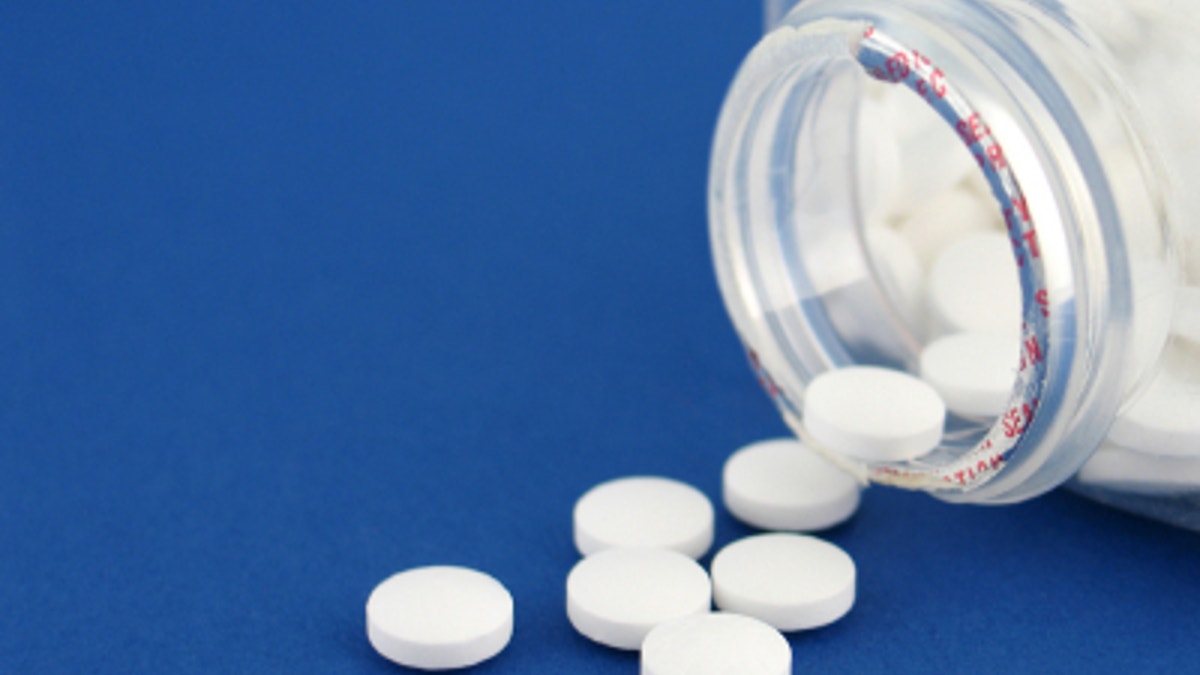
Despite a lot of excitement about aspirin, scientists can't seem to agree on whether the drug helps healthy people live longer.
Just one month after a study failed to find an effect on overall death rates—a new report based on the same data has arrived at the opposite conclusion.
"This reduction in all-cause mortality tilts the balance between the benefits and risks of treatment in favor of the use of aspirin," researchers write in the American Journal of Medicine.
Experts agree that aspirin, one of the world's most widely used drugs, is worth taking for people who've already had one heart attack. While it has side effects, it lowers the chance of a second heart attack, fatal or not, enough to outweigh those risks.
But whether and when healthy people might benefit is a hotly debated question, the answer to which depends on which medical group you ask.
1,100 ASPIRIN-TAKERS TO PREVENT ONE DEATH
The new study is an attempt to weigh the overall harms and benefit by looking at all-cause mortality, or deaths for any reason.
Known as a meta-analysis, it pools the results of nine previous aspirin trials involving more than 100,000 men and women and lasting four to ten years. Some participants were healthy and some had diabetes, but none had chest pain or other symptoms of an ailing heart.
According to the authors of the report, 3.65 percent of the people randomly assigned to small doses of aspirin died during the trials, compared to 3.74 percent of people not taking the drug.
The researchers say that difference is enough to favor aspirin use in people without a history of heart disease, and should inform future guidelines.
But a closer look at the data shows 1,111 people would need to take aspirin daily for the duration of the trials to stave off just one death—the so-called number needed to treat.
And there is a price tag, too: nine of those individuals would suffer bleeding ulcers due to the drug, and nearly four would have other major bleeds, like hemorrhagic stroke.
"The number needed to harm is much, much lower than the number needed to treat," said Dr. Franz Messerli, who heads the high blood pressure program at St. Luke's-Roosevelt Hospital in New York and was not involved in the new work.
"If the patient has no risk factors for heart disease, I see no reason to put them on aspirin," he told Reuters Health.
ARE THERE REAL BENEFITS?
Messerli also mentioned that the reduction in deaths is barely credible statistically speaking, and that the analysis differs from a previous one based on the same nine trials.
"That's what bothers me," he said. "One says the effect is statistically significant and the other says it's not. Why the heck that would be, I don't know."
The previous meta-analysis was supported by aspirin-maker Bayer AG, while the new one received no funding.
Dr. John Eikelboom of McMaster University in Hamilton, Canada, who worked on the new study, did not respond to a request for comments.
The researchers did find some clear-cut benefit, however.
For instance, 1.68 percent of people on aspirin suffered a heart attack, fatal and non-fatal, compared to 1.91 percent of those not taking the drug.
That means about 435 healthy people would have to take aspirin daily, at a cost of a cent or so per pill, to prevent one heart attack.
WHAT THE RECOMMENDATIONS SAY
Heart disease is the leading killer worldwide and accounts for more than a third of deaths in the U.S., according to the American Heart Association. Every year, heart attacks alone kill some 400,000 Americans.
The association recommends that no one should start aspirin therapy without talking to their doctor first, although it does advise aspirin use when people are at increased risk of heart disease—for instance due to smoking or obesity.
In general, doctors advise eliminating those risk factors through a healthy lifestyle. That will not only slash the risk of heart disease, but also a host of other health problems.
The U.S. Preventive Services Task Force (USPSTF), a federally supported expert panel, advises that men age 45 to 79 take aspirin to stave off heart attacks, as long as the benefit outweighs the risk of bleeding.
For women age 55 to 79, aspirin is recommended to prevent strokes, with the same caveat.
Last month, Dr. Michael L. LeFevre of the USPSTF told Reuters Health that recommendations should be made one patient at a time.
"The number of events that you prevent depends on your baseline risk," he said. "A blanket recommendation that everybody should take an aspirin is not a good idea."
